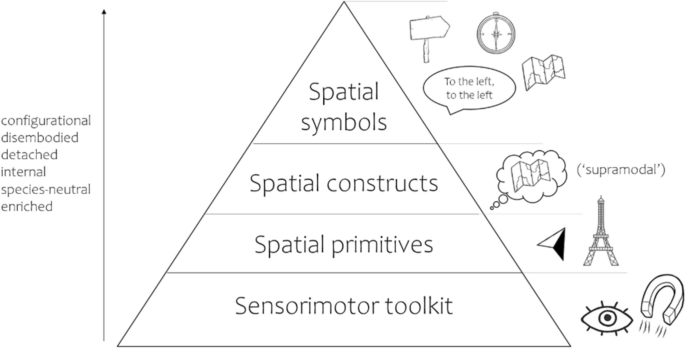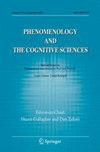没有心理表征的动物导航
IF 1.9
1区 哲学
0 PHILOSOPHY
引用次数: 0
摘要
动物是否需要丰富的内部表征,如认知地图,来导航复杂的环境?一些研究人员认为是这样的,因为他们认为感官信息“太贫乏”,无法解释动物的寻路能力。然而,正如詹姆斯·j·吉布森所表明的那样,这种假设是有争议的。吉布森提出,寻路包括探测环境结构随时间变化的信息,并使用“远景”和“过渡”的概念来解释陆地导航。虽然这些概念可能并不普遍适用于动物导航,但它们强调了利用稳定的环境结构来寻路的重要性。通过寻找与物种相关的环境结构,我们可以深入了解不同的非人类动物的导航能力,同时认识到形成这些能力的独特的进化历史和生态环境。本文章由计算机程序翻译,如有差异,请以英文原文为准。

Animal navigation without mental representation
Abstract Do animals require rich internal representations, such as cognitive maps, to navigate complex environments? Some researchers believe so, as they argue that sensory information is “too poor” to account for animals’ wayfinding abilities. However, this assumption is debatable, as James J. Gibson showed. Gibson proposed that wayfinding involves detecting information about environmental structure over time and used the concepts of “vistas” and “transitions” to explain terrestrial navigation. While these concepts may not apply universally to animal navigation, they highlight the importance of exploiting stable environmental structures for wayfinding. By searching for species-relative environmental structures, we may gain insight into the navigational abilities of different nonhuman animals, while recognizing the unique evolutionary histories and ecological contexts that have shaped these abilities.
求助全文
通过发布文献求助,成功后即可免费获取论文全文。
去求助
来源期刊

Phenomenology and the Cognitive Sciences
PHILOSOPHY-
CiteScore
5.00
自引率
8.70%
发文量
72
期刊介绍:
Phenomenology and the Cognitive Sciences is an interdisciplinary, international journal that serves as a forum to explore the intersections between phenomenology, empirical science, and analytic philosophy of mind. The journal represents an attempt to build bridges between continental phenomenological approaches (in the tradition following Husserl) and disciplines that have not always been open to or aware of phenomenological contributions to understanding cognition and related topics. The journal welcomes contributions by phenomenologists, scientists, and philosophers who study cognition, broadly defined to include issues that are open to both phenomenological and empirical investigation, including perception, emotion, language, and so forth. In addition the journal welcomes discussions of methodological issues that involve the variety of approaches appropriate for addressing these problems. Phenomenology and the Cognitive Sciences also publishes critical review articles that address recent work in areas relevant to the connection between empirical results in experimental science and first-person perspective.Double-blind review procedure The journal follows a double-blind reviewing procedure. Authors are therefore requested to place their name and affiliation on a separate page. Self-identifying citations and references in the article text should either be avoided or left blank when manuscripts are first submitted. Authors are responsible for reinserting self-identifying citations and references when manuscripts are prepared for final submission.
 求助内容:
求助内容: 应助结果提醒方式:
应助结果提醒方式:


